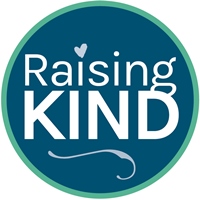
On a crisp November afternoon only a few days after Donald Trump won the presidency, nearly 5,000 Seattle high school students walked out of school to protest the election results. My twin teenagers, juniors at Ballard High School, were among them. In the days leading up to the election, and in its wake, I’ve taken my children to protests at Westlake Park, in the airport and through the streets of Seattle. Even my 6-year-old twin daughters have donned “Black Lives Matter” t-shirts and held up signs declaring that everyone is welcome at their elementary school. Life under a Trump presidency has come to be defined, at least in part, by the frequency and vigor of the rebellion against it.
This generation isn’t the first to protest injustice, and it won’t be the last. I’ve been a parent for 19 years. It’s always been important to me to raise children who aren’t afraid to stand up for what they believe in. Still, I’d be lying if I said this desire hasn’t grown and evolved in response to the current political climate. What was once merely an idea among other competing parenting ideologies has swelled to an all-consuming urge. If ever there was a time to raise a child who will rise up and resist, I believe it’s now.
Rebellion hasn’t always been considered a desirable character trait in a child. Even now, there’s little room in Western culture for children to question authority or think for themselves. “Kids are born curious and questioning everything. It is usually through school and parenting that this curiosity and desire to question everything is silenced,” says Margaret Bell, a child and adolescent counselor in Colorado. “Children are taught early on to be obedient, not to talk back to elders and that people older than them should not be questioned.”
11 ways to inspire meaningful rebellion
- Read to young kids from a variety of books that highlight freethinkers of all ages whose actions changed the world.
- Give children room to explore and play on their own. Let them take (reasonable) risks and see what happens.
- Encourage open communication, keeping in mind developmental stages to ensure the conversations are appropriate. Don’t shy away from difficult topics, and encourage your kids to ask tough questions.
- Allow them to question your own authority, within reason. Make your home a safe place to ask questions and make limits clear. Don’t be afraid to change your rules if your child offers a compelling reason for doing so.
- Model the type of rebellion you believe is important. Invest your time and energy in the causes that matter to you, and include your kids as much as possible.
- Listen to children without attempting to fix or solve their problems; simply reflect back to them that they and their feelings are OK. This allows children the space they need — apart from their parents — to have a vivid emotional life.
- Involve your children in civic action of all kinds. Take them with you when you cast your ballot, bring them with you to protests and make sure they grow up understanding where they fit in.
- Ask them questions about the world around them, and listen for their answers. Take on the role of listener, not just teacher.
- Question the status quo in your own life and especially how you raise your children. Why not let them color their hair or wear their pajamas to school? If the answer is “Because that’s not what we do,” ask yourself if you really agree. Share your thought process with your child.
- Encourage empathy by helping your kids collect donations for the food bank or serve meals to the homeless. Shop together for holiday gifts for toy drives and encourage your children to find ways to help others in their own lives.
- Seek out new perspectives and different cultures for you and your children. Exposing them to different ways of life helps them remain open-minded and flexible while encouraging them to look outside their own experiences.
In a system that values obedience more than freethinking, it’s not surprising that “rebel” is sometimes a dirty word. The negative aspect of the word was the inspiration behind the title of Good Night Stories for Rebel Girls, a collection of bedtime stories featuring 100 remarkable women throughout history. “‘Rebel’ is usually a word that has a negative connotation, especially when it’s associated with women,” says Elena Favilli, the book’s co-author. “This was a way to say that being a rebel woman is actually a good thing. It’s not a bad thing like they want you to think.”
America seems to agree. Good Night Stories for Rebel Girls was published in tandem with the 2016 presidential election, following the most successful crowdfunding campaign for a book to date (backed by more than 30,000 people on Kickstarter alone). Favilli credits much of the book’s success with its ability to tap into the political consciousness that arose during and after the election. “That’s what has turned this book into something people want to hold onto,” she says. “It represents something larger than just a children’s book or a bedtime book.” (The upcoming sequel, Good Night Stories for Rebel Girls 2, reached its funding goal in June on Kickstarter in a matter of hours and will be available for purchase around the winter holidays.)
There’s no denying that rebellion is a privilege allowed to only a certain subset of people. As Favilli points out, rebellion has long been more socially acceptable when it comes from a man, and there are clear divides in how rebellion is received when it’s embodied in a black, brown or otherwise nonwhite body. For some parents, rebellion is a privilege that’s out of reach for their children.
Still, many parents are beginning to consider rebelliousness as an important trait to instill in their kids. But what should a rebellious child look like? No parent wants to raise a child who’s out of control or incapable of accepting limits or authority. That’s where “reflective rebelliousness” comes in. Coined by American educator Alfie Kohn, reflective rebelliousness refers to the idea that children should be raised to question the status quo rather than simply doing what they’re told. By questioning and reflecting, children learn to engage with the world in a different and ultimately more meaningful way.
There is such a thing as good versus bad rebellion
Although we tend to think of rebellion in terms of protests or revolutions, there are many ways to rebel against the status quo — but all of them require action to make a lasting impact.
“Rebellion can be an inside job. It can just be someone being who they are. But for rebellion to have value in the larger community and society, it would require action,” says Brad Reedy, Ph.D., author of The Journey of the Heroic Parent: Your Child’s Struggle & the Road Home, and clinical director and cofounder of Evoke Therapy Programs, through which he helps parents and children reconnect. “It can be as simple as not allowing oneself to be mistreated in a relationship, and can be as large as a political movement, standing up for human rights or a rebellion that leads to the discovery of a cure for a disease or the creation of a new form of art.”
That’s why Kohn’s second step toward reflective rebelliousness is for children to ask themselves what they are going to do about things they find unacceptable or unjust. In my household, this has sometimes looked like my kids organizing a chore strike until their working conditions are met — an unpleasant, but effective, strategy for labor reform. As children begin to see demonstrable results from their efforts, they learn that speaking out or taking action can be an effective way to create change.
Despite the growing movement in favor of reclaiming rebellion as a positive character trait, there is a downside. We’ve all met that kid who seems to rebel against everything and everyone (and sometimes, that child is ours!). Just because children push back against authority doesn’t mean their rebellion is coming from a healthy or functional place.
“When rebellion is for the sake of rebellion, it becomes irrational and fueled by rage rather than by the need to be oneself,” says Reedy. “This rebellion seeks to define [the] self in opposition to everything and everyone, and does not consider that the status quo, the authority figure or the rules may offer some value. When rebellion is fueled by this kind of rage, it looks darker and may take on the quality of anarchy.”
So, how can parents tell the difference between healthy and unhealthy forms of rebellion? “A rebel without a cause is someone who just resists the status quo and kicks up against convention and offers no solutions,” says Jennifer Freed, Ph.D., cofounder of AHA!, a Santa Barbara, California, youth-focused nonprofit that works to end bullying, improve self-esteem and empower teens through emotional learning and creative expression. “A rebel with a cause is someone who puts others first and has a distinct and dedicated vision for improving the world.” Most important, positive rebellion is tied to empathy and a desire to help others.
Although rebellion is at times the outward manifestation of freethinkers, in many cases how often children rebel has more to do with the system they’re living in than the children themselves. If your household (or country) is run with respect and authoritativeness, rather than injustice and authoritarianism, there is less to rebel against. That’s why Reedy suggests that parents do their best to instill a strong sense of self in their kids (rather than focusing on rebellion itself).
He says parents can do this in two primary ways.
- Create a home where children’s feelings are valued. To develop a secure sense of self, kids need to know they are heard, seen and valued. This teaches them to trust their own perceptions and paves the way for adult autonomy.
- Give kids room to make their own mistakes. Developing critical-thinking skills and a rebellious spirit requires that kids have the room to test their own theories. While some of these might end in failure, Reedy says, that’s a necessary part of growth. It’s also important that kids’ failures be taken in stride, so children learn to accept them as another part of life — rather than shy away from risk.
Of course, it’s one thing to believe in the value of freethinking and quite another to handle daily negotiations over everything from bedtimes to chores. Reedy, who has worked with children and families for more than 20 years, concedes that it takes more from parents to raise a freethinker than it does to “enforce rules and demand obedience.” Not every parent can adequately (or practically) tackle the greater mental and emotional demands of this process, not to mention that many parents lack a good example to follow.
Ultimately, raising a freethinking rebel child requires parents to change themselves — not their children. “The foundation for the capacity required to raise a child who possesses freethinking and a healthy questioning of authority is that the parent must have a healthy sense of self,” says Reedy.
For parents who didn’t develop a strong sense of self in childhood, it’s not too late. Reedy emphasizes that adults can achieve similar results through therapy. But no matter how you get there, the goal is to have enough self-awareness to see yourself and your children clearly; the ability to define interpersonal boundaries; the strength to enforce appropriate and consistent limits with your children; and the flexibility to adapt to your child’s needs and wants (rather than expecting them to cater to yours).
As Reedy puts it: “If we don’t know ourselves, we aren’t able to see others and their needs — whether rebels or not.”
Remember this when raising a rebel"In an age where white parents are teaching their children about #resistance and dissent, Black parents are teaching their kids to toe the line because it’s quite literally a matter of life and death." Read on. |













